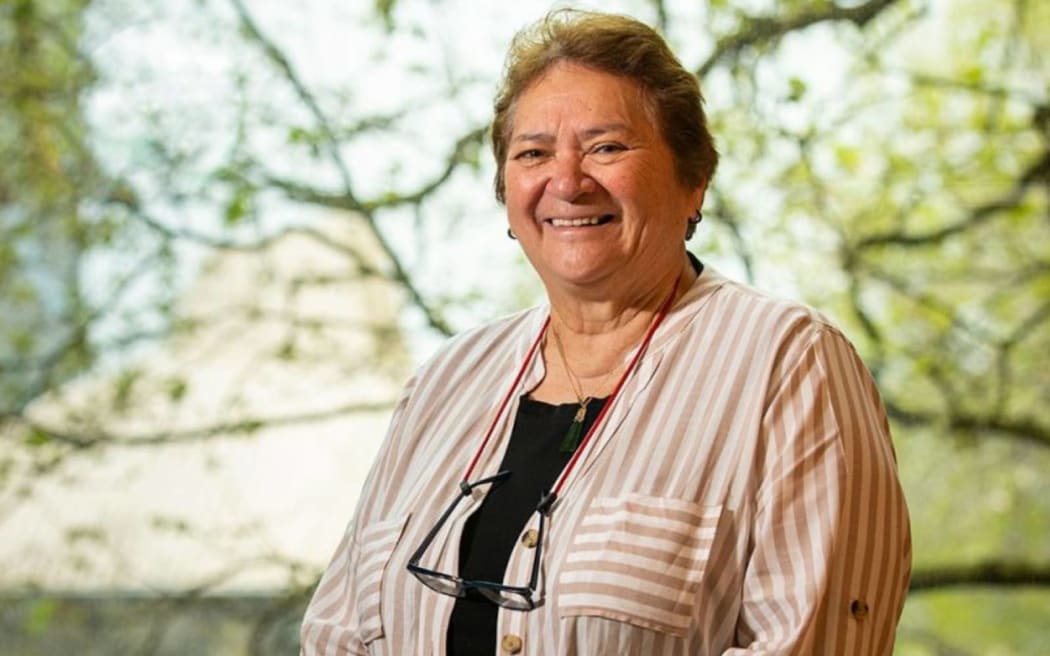Health
Researchers Urge Support for Rural Māori Caregivers of Dementia

More support is critical for rural Māori whānau caring for loved ones with dementia, or mate wareware, according to leading brain researchers. During recent discussions, Sir Richard Faull, director of the Centre for Brain Research at the University of Auckland, and his deputy, Māori, Dr. Makarena Dudley, highlighted the urgent need for resources and information for these families. They noted that Māori and Pacific peoples are disproportionately affected by dementia compared to other demographics.
The researchers recently participated in a series of hui at marae across Aotearoa, including visits to the Far North and Whanganui. They aim to engage directly with Māori communities, sharing vital information about dementia and gathering personal accounts from caregivers. Dr. Dudley emphasized the challenges faced by many caregivers, stating, “Some of these caregivers are desperate for support. They care for loved ones exhibiting very challenging behaviours, especially in the severe stages.”
Caregiver isolation is a significant issue, particularly in remote regions where resources are limited. Dr. Dudley pointed out that a global study indicated caregivers often experience higher mortality rates than the individuals they care for. The researchers are currently conducting a nationwide prevalence study to better understand the impact of dementia within Māori communities. The study is set to conclude in one year and is expected to provide accurate data on the condition’s reach.
The primary objective of visiting marae is to communicate the realities of dementia while listening to the experiences of caregivers. Dr. Dudley mentioned that they have visited approximately 25 marae and engaged with hundreds of kaumātua (elders), many of whose stories are deeply moving. A recurring theme from these visits has been the lack of available information and services for Māori, particularly those living in remote areas.
The Centre for Brain Research has initiated a program to support caregivers in Ahipara, which has shown promising results without requiring extensive funding. Additionally, Dr. Dudley has developed an app designed to provide essential information about dementia to Māori families. This resource aims to bridge the information gap and ensure that caregivers are equipped with the knowledge they need.
The ethos of the Centre for Brain Research focuses not only on conducting research but also on effectively communicating findings to the community. Faull expressed the importance of this engagement, stating, “It is a privilege to go out to marae, listen to people, and put our ethos into action.” He highlighted the urgent need for awareness regarding risk factors associated with dementia, noting that addressing them could potentially reduce the prevalence of Alzheimer’s disease by up to 60 percent.
In developing an effective model for treating dementia that resonates with Māori, both researchers advocate for the integration of knowledge from Western science and mātauranga (Māori knowledge). Dr. Dudley explained that much of the existing information does not resonate with Māori communities because it often lacks cultural relevance. The Centre for Brain Research is committed to creating a model that aligns with Māori perspectives, which they believe will facilitate progress in reducing dementia incidents.
As the researchers continue their outreach efforts, they aim to create a collaborative environment that fosters understanding and support for those affected by dementia. This initiative not only addresses immediate needs but also lays the groundwork for a more informed and resilient community moving forward.
-

 World3 months ago
World3 months agoTest Your Knowledge: Take the Herald’s Afternoon Quiz Today
-

 Sports3 months ago
Sports3 months agoPM Faces Backlash from Fans During Netball Trophy Ceremony
-

 Lifestyle3 months ago
Lifestyle3 months agoDunedin Designers Win Top Award at Hokonui Fashion Event
-

 Sports3 months ago
Sports3 months agoLiam Lawson Launches New Era for Racing Bulls with Strong Start
-

 Lifestyle3 months ago
Lifestyle3 months agoDisney Fan Reveals Dress Code Tips for Park Visitors
-

 Health3 months ago
Health3 months agoWalking Faster Offers Major Health Benefits for Older Adults
-

 World3 months ago
World3 months agoCoalition Forms to Preserve Māori Wards in Hawke’s Bay
-

 Politics3 months ago
Politics3 months agoScots Rally with Humor and Music to Protest Trump’s Visit
-

 Top Stories3 months ago
Top Stories3 months agoUK and India Finalize Trade Deal to Boost Economic Ties
-

 Entertainment3 months ago
Entertainment3 months agoExperience the Excitement of ‘Chief of War’ in Oʻahu
-

 World3 months ago
World3 months agoHuntly Begins Water Pipe Flushing to Resolve Brown Water Issue
-

 Science3 months ago
Science3 months agoNew Interactive Map Reveals Wairarapa Valley’s Geological Secrets









